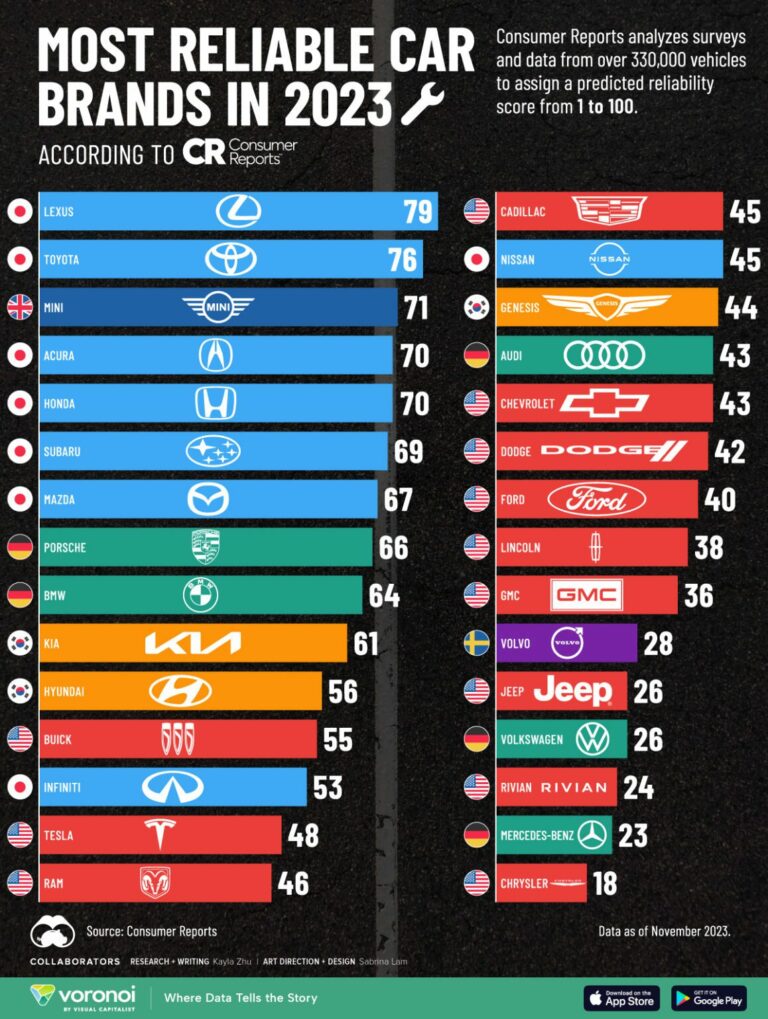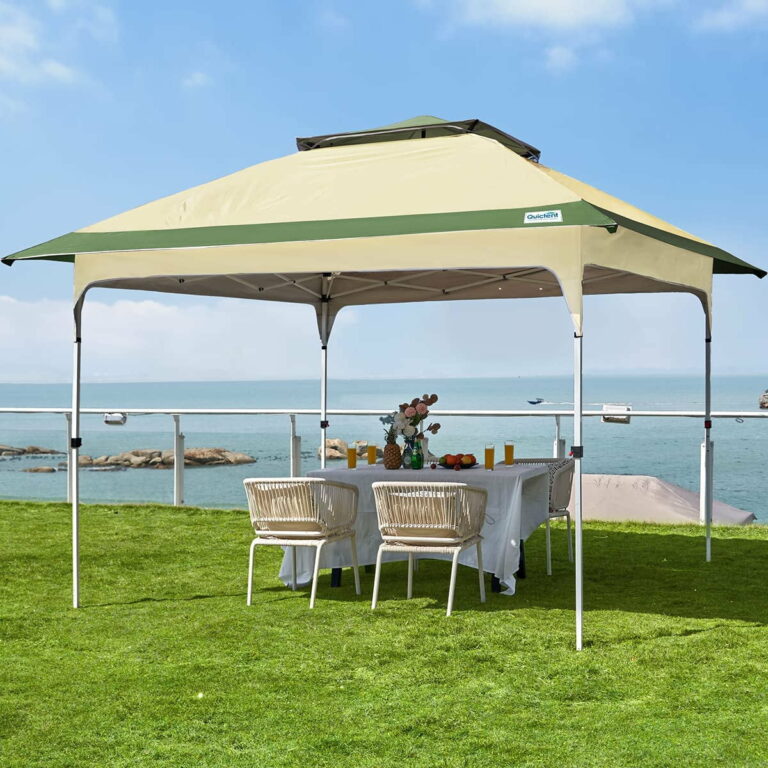Best Cheap Car Brands: Your Ultimate Guide to Affordable and Reliable Wheels
Best Cheap Car Brands: Your Ultimate Guide to Affordable and Reliable Wheels cars.truckstrend.com
In today’s dynamic economic landscape, the quest for a new or used vehicle often clashes with the reality of rising costs. Yet, the term "cheap car" doesn’t have to equate to compromise on quality, reliability, or safety. Instead, it represents a smart, strategic purchase – a vehicle that delivers exceptional value for its price point, offering low initial costs, manageable running expenses, and dependable performance. This comprehensive guide aims to demystify the world of affordable automobiles, highlighting the best cheap car brands that consistently provide more bang for your buck.
Understanding "Cheap": More Than Just the Sticker Price
Best Cheap Car Brands: Your Ultimate Guide to Affordable and Reliable Wheels
When we talk about "cheap car brands," it’s crucial to look beyond the initial purchase price. A truly affordable vehicle offers a low Total Cost of Ownership (TCO), which encompasses various factors over its lifespan. These include:
- Initial Purchase Price: The upfront cost of buying the car.
- Fuel Efficiency: How many miles you can travel per gallon (or kWh for EVs). A car with a low sticker price but poor fuel economy can quickly become expensive to run.
- Insurance Costs: Vehicles with lower replacement costs, better safety ratings, and common parts often have lower insurance premiums.
- Maintenance & Repairs: The cost and frequency of servicing, and the availability and affordability of spare parts. Brands known for reliability tend to have lower maintenance costs.
- Depreciation: How much value the car loses over time. Some "cheap" cars hold their value surprisingly well.
- Warranty: A long, comprehensive warranty can save you significant money on unexpected repairs.

Therefore, the "best cheap car brands" are those that skillfully balance a low entry price with favorable long-term ownership costs, ensuring you get maximum value without breaking the bank.
Top Contenders: Best Cheap Car Brands on the Market
Several automotive brands have carved out a niche by consistently delivering affordable vehicles that defy their modest price tags. They do so by focusing on core functionality, smart design, and efficient manufacturing processes, often passing those savings directly to the consumer.
1. Hyundai & Kia (Korean Powerhouses)
Hyundai and its sibling brand Kia have revolutionized the perception of affordable cars. Once known primarily for their low prices, they now offer a compelling blend of stylish design, modern technology, impressive fuel economy, and, crucially, some of the industry’s best warranties (e.g., 5-year/60,000-mile basic, 10-year/100,000-mile powertrain).
- Key Models for Value:
- Hyundai Accent/Venue: Subcompact sedans and SUVs offering great fuel economy and essential features.
- Kia Rio/Forte: Similar to their Hyundai counterparts, these offer sharp styling and surprising interior quality for their price.
- Why They’re Great: Excellent standard features, intuitive infotainment systems, robust safety options, and unbeatable warranties that drastically reduce TCO.
2. Mitsubishi (Understated Reliability)
Mitsubishi might not have the extensive lineup of some competitors, but its entry-level offerings are among the most affordable new cars available, often boasting a compelling 10-year/100,000-mile powertrain warranty. While basic in features, they are known for their simplicity and long-term reliability.
- Key Models for Value:
- Mitsubishi Mirage/Mirage G4: Often the cheapest new car on the market, known for exceptional fuel economy and a straightforward, no-frills approach to transportation.
- Why They’re Great: Ultra-low purchase price, outstanding fuel efficiency, and a fantastic warranty providing peace of mind.
3. Nissan (Accessible Technology)
Nissan often positions itself as a brand offering accessible technology and comfort features across its range, including its most budget-friendly models. They frequently have competitive pricing and various trim levels to fit different budgets.
- Key Models for Value:
- Nissan Versa: Consistently one of the most affordable sedans, offering a surprisingly spacious interior and decent fuel economy.
- Nissan Kicks: A compact SUV that often comes with a very attractive price tag, making it an excellent entry point into the SUV segment.
- Why They’re Great: Good fuel economy, competitive pricing, comfortable interiors, and available tech features that enhance the driving experience.
4. Chevrolet (American Value)
General Motors’ Chevrolet brand offers a few compelling options for budget-conscious buyers, particularly in the subcompact segment. These models often come with competitive pricing and can be found with attractive incentives.
- Key Models for Value:
- Chevrolet Spark: One of the smallest and most affordable new cars, perfect for urban driving and incredibly fuel-efficient.
- Chevrolet Trax (entry-level): An accessible entry into the compact SUV market, offering practicality at a reasonable price point.
- Why They’re Great: Very low starting prices, good maneuverability, and modern infotainment options even in base trims.
5. Honda & Toyota (Long-Term Value Champions)
While new Honda and Toyota vehicles might not always have the absolute lowest sticker prices, their legendary reliability, low maintenance costs, and exceptional resale values make them incredibly cheap to own in the long run. When considering "cheap," their entry-level models or well-maintained used examples offer unparalleled long-term value.
- Key Models for Value (New Entry-Level & Used):
- Honda Fit (used): A masterclass in space efficiency and reliability, offering hatchback versatility.
- Toyota Yaris (used)/Corolla (entry-level): Renowned for their bulletproof reliability, fuel efficiency, and low TCO.
- Honda Civic (entry-level/used): Another benchmark for reliability and efficiency, excellent as a long-term budget car.
- Why They’re Great: Unmatched reliability, superb resale value, widespread service availability, and excellent fuel economy, leading to a very low TCO over many years.
Key Factors to Consider When Buying a Cheap Car
Making an informed decision about an affordable vehicle requires a holistic approach. Here are the crucial factors to weigh:
- Reliability and Durability: This is paramount. A car that frequently breaks down, regardless of its low purchase price, will quickly become a financial burden. Research brand and model reliability ratings (e.g., from Consumer Reports, J.D. Power).
- Fuel Economy: As a major ongoing expense, excellent MPG directly translates to lower running costs. Pay attention to both city and highway ratings.
- Insurance Costs: Get quotes for specific models before buying. Factors like engine size, safety features, and theft rates influence premiums.
- Maintenance & Parts Availability: Choose a brand with a strong service network and readily available, affordable parts. This ensures routine maintenance is cost-effective and unexpected repairs are manageable.
- Safety Features: Even budget cars today come with a host of standard safety features. Look for models with good crash test ratings and active safety technologies like automatic emergency braking or lane-keeping assist, even if they’re optional.
- Resale Value: A car that holds its value well will cost you less in depreciation over time, which is a significant part of TCO. Honda and Toyota typically excel here.
- Warranty: As mentioned, longer and more comprehensive warranties (like those from Hyundai/Kia and Mitsubishi) offer excellent protection against unexpected repair costs.
- Practicality and Needs: Assess your specific needs. Do you need cargo space, passenger room, or just a reliable commuter? Don’t pay for features you won’t use.
Tips for Finding the Best Deal on a Cheap Car
Securing the best value involves more than just picking the right brand; it also requires smart shopping strategies.
- Research Extensively: Use online resources, automotive reviews, and owner forums to gather as much information as possible about models you’re considering.
- Consider Certified Pre-Owned (CPO): CPO vehicles from reputable dealerships often come with extended warranties, multi-point inspections, and roadside assistance, offering a nearly-new car experience at a significant discount.
- Look for End-of-Year or Model Changeover Sales: Dealerships are often eager to clear out inventory of the current model year when new models are arriving, leading to significant discounts.
- Negotiate Effectively: Don’t be afraid to haggle. Research the average selling price in your area and be prepared to walk away if the deal isn’t right.
- Get Pre-Approved for Financing: Knowing your budget and approved loan amount before stepping into a dealership gives you leverage and prevents impulse buys.
- Test Drive Thoroughly: Drive on various road types, including highways and city streets, to assess comfort, handling, and noise levels.
- Get an Independent Inspection (for used cars): A pre-purchase inspection by a trusted mechanic can uncover hidden issues and save you from costly repairs down the line.
Challenges and Solutions in the Cheap Car Market
While incredibly rewarding, buying a cheap car can present its own set of challenges.
- Challenge: Limited Features and Basic Interiors: Affordable cars often prioritize functionality over luxury.
- Solution: Prioritize essential features you genuinely need (e.g., A/C, power windows, basic infotainment with smartphone integration). Many budget cars still offer these. Aftermarket upgrades for infotainment or comfort can be cost-effective.
- Challenge: Perceived Lack of Prestige: Some buyers may feel a stigma associated with driving a "cheap" car.
- Solution: Shift your mindset. Focus on the practicality, financial wisdom, and smart spending that a value-oriented car represents. It’s about smart transportation, not status symbols.
- Challenge: High Demand for Good Used Cheap Cars: Popular reliable models often sell quickly, especially in the used market.
- Solution: Act quickly when you find a good deal. Broaden your search area and consider private sellers in addition to dealerships.
- Challenge: Some "Cheap" Cars Have High TCO: A low sticker price can hide expensive running costs.
- Solution: Always research the Total Cost of Ownership (TCO), including fuel economy, insurance, and typical maintenance costs, before committing to a purchase.
Price Table: Representative Best Cheap Car Brands & Models (Estimated New Car Prices, USD)
Please note: Prices are highly variable based on region, trim level, optional features, current incentives, and market conditions. These are estimated starting MSRPs for new vehicles at the time of writing and do not include destination charges, taxes, or fees.
| Brand | Model (Example) | Estimated New Price Range (USD) | Key Strengths | Typical TCO Factor |
|---|---|---|---|---|
| Hyundai | Venue / Accent | $19,000 – $24,000 | Excellent warranty, modern features, good fuel economy | Low |
| Kia | Rio / Forte | $18,000 – $24,000 | Stylish design, strong warranty, good value for money | Low |
| Mitsubishi | Mirage / Mirage G4 | $17,000 – $22,000 | Ultra-low purchase price, outstanding fuel economy, long warranty | Very Low |
| Nissan | Versa / Kicks | $17,000 – $25,000 | Competitive pricing, decent tech, comfortable ride | Low-Moderate |
| Chevrolet | Spark / Trax (base) | $16,000 – $23,000 | Very low entry price, maneuverability, simple tech | Low-Moderate |
| Toyota | Corolla (base) | $22,000 – $27,000 | Legendary reliability, high resale value, low maintenance | Very Low |
| Honda | Civic (base/used) | $24,000 – $29,000 (New Base) | Exceptional reliability, great resale value, fun to drive | Very Low |
Note: For Honda and Toyota, while new entry-level models are not the absolute cheapest upfront, their long-term value, low maintenance, and high resale make them incredibly cost-effective over time. Used models of these brands often represent the best overall "cheap car" value.
Frequently Asked Questions (FAQ)
Q1: Are cheap cars safe?
A1: Modern "cheap" cars are much safer than older budget vehicles. Many come standard with essential safety features like multiple airbags, stability control, and anti-lock brakes. Brands like Hyundai, Kia, and even Mitsubishi Mirage often receive good crash test ratings from organizations like the IIHS and NHTSA. Always check the specific model’s safety ratings.
Q2: Do cheap cars last long?
A2: Absolutely. Brands like Toyota, Honda, Hyundai, and Kia are known for their longevity and reliability, regardless of price point. With proper maintenance, even a budget car can last well over 150,000-200,000 miles.
Q3: What’s the difference between "cheap" and "value"?
A3: "Cheap" often refers to the initial low purchase price. "Value" encompasses the total cost of ownership, including purchase price, fuel, insurance, maintenance, and depreciation. A truly "cheap" car offers excellent value by having low costs across the board.
Q4: Should I buy a new or used car if I’m on a budget?
A4: Both have merits. New budget cars offer warranties and the latest features. Used cars, especially those a few years old, offer significant depreciation savings and can provide a higher trim level for the same price as a new base model. Certified Pre-Owned (CPO) vehicles combine aspects of both.
Q5: How much should I budget for maintenance on a cheap car?
A5: While generally lower than luxury cars, budget about $500-$1,000 per year for routine maintenance (oil changes, tire rotations, brake checks) and potential minor repairs. This can vary significantly by brand and model. Brands known for reliability will typically be on the lower end.
Q6: Are financing options available for cheap cars?
A6: Yes, absolutely. Most dealerships and banks offer financing for budget-friendly vehicles. Interest rates will depend on your credit score and the loan term. Getting pre-approved before shopping can help you secure better rates.
Conclusion
The notion that an affordable car must be unreliable or lacking in essential features is a relic of the past. Today’s best cheap car brands stand as testament to ingenuity and efficiency, delivering vehicles that are not only accessible but also dependable, fuel-efficient, and increasingly well-equipped. By focusing on the total cost of ownership, researching diligently, and employing smart shopping strategies, buyers can confidently navigate the market and find a truly valuable vehicle that fits their budget without compromising on their transportation needs. Investing in a "cheap" car from a reputable brand is not just about saving money upfront; it’s about making a smart, long-term financial decision that pays dividends in reliability and peace of mind for years to come.





